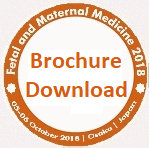Siok Chang
St Vincent’s Hospital Melbourne, Australia
Title: Highway to personalized medicine: For NSCLC patients
Biography
Biography: Siok Chang
Abstract
In the last decade, the evolution of personalized medicine has made a significant impact on cancer diagnosis, prognosis, prevention and therapeutics. Personalized medicine is defined as an emerging model to tailor medical treatment based on individual’s molecular traits. The technological advancement of molecular diagnostic techniques like Next Generation Sequencing (NGS) and Fluorescence In Situ Hybridization (FISH) allows the expansion of the concept of personalized medicine. Lung cancer is currently the world leading cancer-related mortality and there is extensive ongoing genomic research and studies on it. Hence, it is not surprising that Non-Small Cell Lung Carcinoma (NSCLC), the most common subtype of lung cancer has impressively high number of discovered actionable driver mutation genes compare to other type of cancer. Historically, patients with NSCLC were commonly treated with platinum-based cytotoxic chemotherapy. The discovery of significant driver mutation genes in NSCLC like EGFR, ALK and ROS1 has dramatically revolutionized the landscape of NSCLC treatment. The emergence of targeted therapies based on individual molecular tumor profiling enables NSCLC patients to be treated with lower toxicity and improved prognosis, hence better quality of life. The efficacy of various targeted treatments confirms that there is an increasingly important role of personalized medicine.

